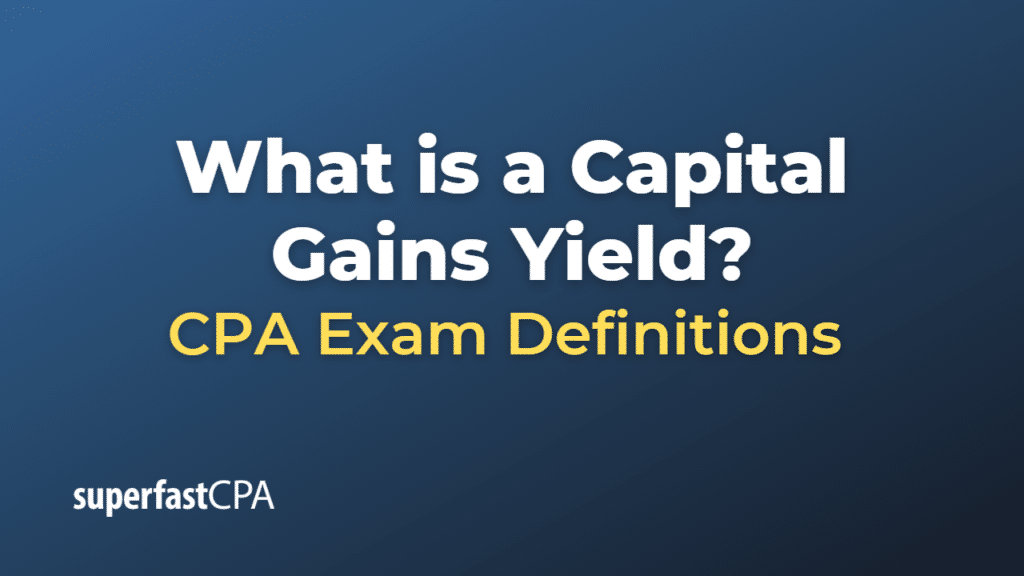Capital Gains Yield
Capital gains yield (CGY) is a financial metric that measures the percentage change in the market value of an investment, such as a stock or a bond, over a specific period, typically one year. It is used to evaluate the potential return on an investment due to an increase in its market price, excluding any income generated from dividends or interest.
Capital gains yield is calculated using the following formula:
\(\text{Capital Gains Yield} = \frac{\text{Ending Market Price – Beginning Market Price}}{\text{Beginning Market Price}} \)
The result is usually expressed as a percentage.
It is important to note that capital gains yield only considers the appreciation in the market value of the investment and does not account for any income generated by the investment, such as dividends for stocks or interest for bonds. To get a more comprehensive understanding of an investment’s total return, investors often combine capital gains yield with dividend yield (for stocks) or interest yield (for bonds) to calculate the total return on investment.
Here’s an example to illustrate capital gains yield:
Let’s assume you bought a stock at the beginning of the year for $100 per share. By the end of the year, the stock’s market price has increased to $120 per share. To calculate the capital gains yield, you would use the formula:
Capital Gains Yield = ($120 – $100) / $100 = $20 / $100 = 0.20, or 20%
In this example, the capital gains yield on the stock is 20%, which represents the appreciation in its market value over the course of the year.
Example of a Capital Gains Yield
Let’s consider a real-life example using a hypothetical investment in a company’s stock.
Suppose you purchased 100 shares of Company XYZ at the beginning of the year for $50 per share, which means your initial investment was $5,000 (100 shares x $50 per share). By the end of the year, the stock price has increased to $60 per share.
Now, let’s calculate the capital gains yield for this investment:
- Determine the beginning market price: In this case, it is $50 per share.
- Determine the ending market price: In this case, it is $60 per share.
- Apply the capital gains yield formula:
\(\text{Capital Gains Yield} = \frac{\text{Ending Market Price – Beginning Market Price}}{\text{Beginning Market Price}} \)
Capital Gains Yield = ($60 – $50) / $50 = $10 / $50 = 0.20
- Convert the result to a percentage: 0.20 x 100% = 20%
In this example, the capital gains yield for your investment in Company XYZ is 20%, which represents the appreciation in the stock’s market value over the course of the year.
Keep in mind that this calculation only considers the increase in the stock’s market price and does not account for any dividend income you may have received from your investment. To get a more comprehensive understanding of your total return on investment, you would need to include dividend yield as well.













